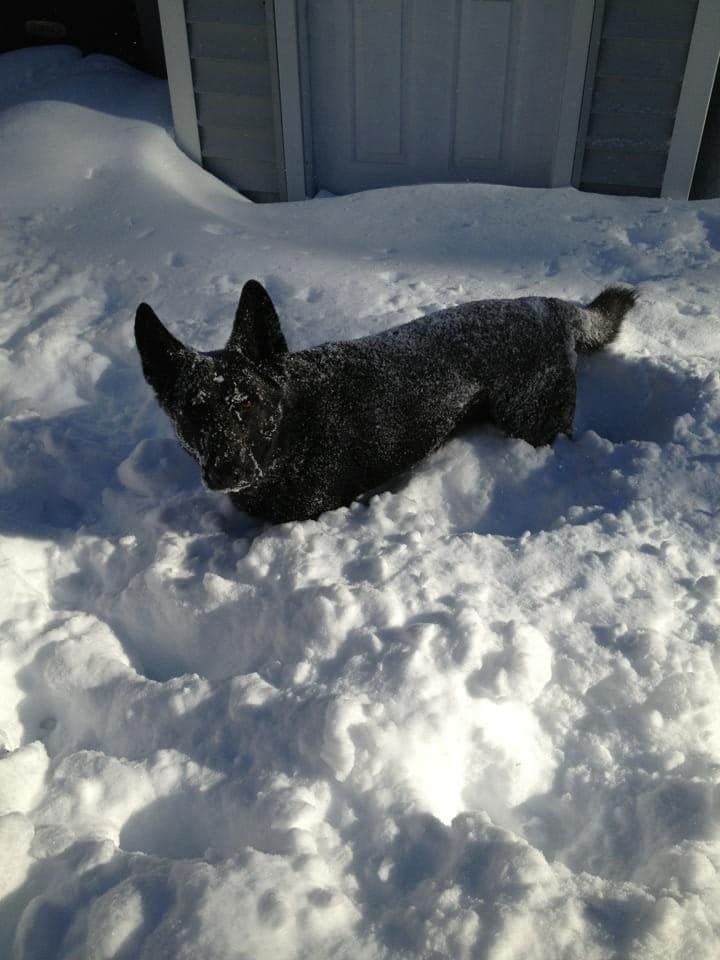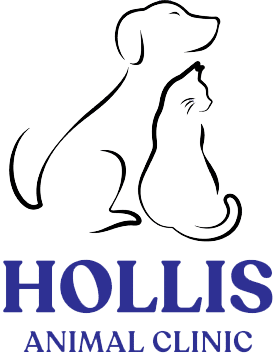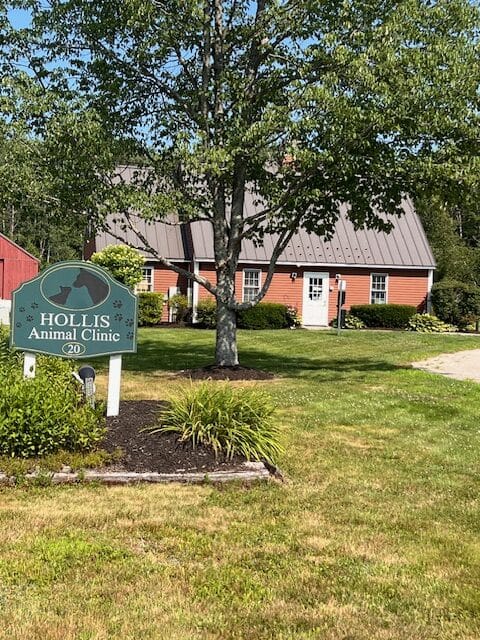Puppy and Kitten Care at Hollis Animal Clinic
Welcoming a new puppy or kitten into your home is a joyous occasion. Their overall health and behavior is very important at their early stages. Hollis Animal Clinic is dedicated to providing the essential care your growing pet needs to ensure optimal health and well-being. Our comprehensive services include regular check-ups, initial vaccinations, parasite prevention, nutritional advice for growing pets, and behavioral guidance and socialization tips.
Let us help you give your new pet the best possible start in life.
Essential Services for Your New Pet

Regular Check-ups at 8, 12, and 16 Weeks
Regular veterinary visits during the first few months of your pet’s life are critical because this is a period of rapid growth and development. Early visits help monitor growth, prevent diseases, and address any concerns. Catching problems early leads to better outcomes.
What is Checked During Appointments
During these check-ups, our veterinarians will conduct comprehensive physical examinations to ensure your pet is developing normally. Early detection of any health issues can make a significant difference in the long-term well-being of your pet.
Here are some of the key areas we focus on:
Weight and Growth
Body Condition
Skin and Coat
Ears
Eyes
Initial Vaccinations
Vaccinations play an important role in protecting your puppy or kitten from many diseases. Your young pets are vulnerable to illnesses because their immune systems are still in the development period. Our initial vaccination schedule includes all necessary vaccines to safeguard your puppy or kitten against illnesses such as distemper, parvovirus, rabies, and for kittens, feline leukemia. Vaccinations are a critical part of your pet’s early care, helping to build immunity and prevent life-threatening diseases.
Key reasons why vaccinations are important include:
Disease prevention
Cost-effective
Socialization
Public health
Legal requirements
Customized vaccination plans
Every pet’s vaccination needs can vary based on several factors, including their age, breed, health status, and lifestyle. Our veterinarians will develop a customized vaccination plan tailored specifically to your puppy or kitten to ensure they receive the right vaccines at the right times.
Your pet’s customized vaccination plan may look like this:

Key Benefits of Vaccinations:
First Visit (8 weeks):
Your puppy or kitten will receive their first set of core vaccines. For puppies, this typically includes the DHPP vaccine, which protects against distemper, hepatitis, parvovirus, and parainfluenza. For kittens, it usually includes the FVRCP vaccine, which protects against feline viral rhinotracheitis, calicivirus, and panleukopenia.
Third Visit (16 weeks):
At this final visit in the initial series, your puppy or kitten will receive their final booster shots. They will also receive the rabies vaccine, which is required by law in many areas and is essential for preventing this deadly disease.
Second Visit (12 weeks):
During this visit, your pet will receive booster shots to reinforce their immunity. Additional vaccines such as Bordetella (for dogs) or FeLV (feline leukemia virus for kittens) may be administered based on risk factors.
Non-Core Vaccines:
Depending on your pet’s lifestyle and risk factors, additional non-core vaccines may be recommended. These could include vaccines for Lyme disease or leptospirosis for puppies, and FIV (feline immunodeficiency virus) for kittens.
Tailored to Individual Needs:
We take into account your pet’s specific needs when developing their vaccination plan. For example, indoor and outdoor cats, or puppies that socialize vs. those that don’t, may need different vaccines.
Booster Shots:
After the initial series, your pets need regular booster shots. Our veterinarians will provide a schedule for these boosters, which are typically given annually or every three years, depending on the vaccine.
Health Monitoring
Each vaccination visit is also an opportunity to monitor your pet’s overall health and development. We will conduct a thorough health evaluation to make sure your pet’s health is optimized and concerns are addressed.
Protect your puppy and kitten with a customized vaccination plan. Our pet experts are here to guide you through the process and answer your questions about your pet’s vaccination needs.
Parasite Prevention
At Hollis Animal Clinic, we offer comprehensive parasite prevention plans to protect your puppy or kitten from these harmful parasites. Our approach includes regular screenings (fecal exams, blood tests, physical exams), preventive medications (flea and tick preventatives, heartworm preventatives, deworming protocols), lifestyle and environmental management (yard and home treatment, hygiene practices, diet and immune support) and educational support (owner education, ongoing support) to ensure your pet remains healthy and parasite-free.
Pets require consistent attention since parasites are a year-round concern. By taking a proactive approach to parasite prevention, you can shield your young pets from the dangers of parasites with us.
Behavioral Guidance and Socialization Tips
Early behavioral training and socialization are essential for a well-adjusted pet. Your young furry friends are more receptive to learning and adapting in their early months or their “socialization window”. We offer guidance on crate training, housebreaking, and socialization to help your puppy or kitten develop good habits and positive behaviors.
Here’s why early behavioral training and socialization are important:
Preventing behavioral problems
Building confidence
Strengthening the human-animal bond
Ensuring safety
Enhancing quality of life
Your Puppy/Kitten’s Behavior Guide
At Hollis Animal Clinic, we provide comprehensive guidance on effective training and socialization techniques to help your puppy or kitten become a well-behaved and well-adjusted adult. Here are some key strategies and tips:
Basic Training Commands: Sit, stay, and come; and leash training.
Housebreaking and Litter Training: Consistent routine and positive reinforcement.
Crate Training: Creating a safe space and avoiding negative associations.
Socialization Activities: Exposure to different environments, meeting new people and animals; and handling and grooming.
Behavioral Enrichment: Interactive toys and games; and training sessions.
Addressing Specific Behavioral Issues: Biting and chewing; and jumping up.
Positive Reinforcement Techniques: Consistency is key and rewards and praise.
Professional Training Support: Puppy and kitten classes and behavioral consultations.


Spay and Neuter Services
At the appropriate age, we recommend spaying (for females) and neutering (for males) your pet to prevent unwanted litters. These services reduce the risk of developing some reproductive cancers and other health issues related. Our veterinarians are highly skilled in performing these procedures with the utmost care, ensuring a smooth recovery for your pet.
Key advantages of spaying and neutering:
Population control
Preventing behavioral issues
Reducing the risk of certain cancers
Preventing infections and diseases
Enhancing lifespan
Health Benefits of Spaying and Neutering:
Females (Spaying):
Prevents pregnancy and heat cycles; Reduces risk of mammary, ovarian, and uterine cancers; Eliminates risk of uterine infections.
Males (Neutering):
Prevents unwanted litters; Reduces risk of testicular cancer and prostate problems; May decrease aggression and roaming.
Spaying or neutering your young furry friend is a responsible decision that benefits both your pet and the broader animal community. At Hollis Animal Clinic, we are committed to providing the highest quality care for your furry family members.
Breed-Specific Care
Different breeds have different care requirements. Our veterinarians are experts in knowing the specific needs of various breeds of puppies and kittens. Whether you have a large breed puppy that requires special joint supplements or a kitten breed prone to dental issues, we can provide tailored care to ensure your pet thrives.
Tailored breed-specific care is essential for several reasons, including:
Genetic health concerns
Grooming requirement
Nutritional requirements
Behavioral traits
Exercise needs
Addressing Specific Breed Needs
Here are some examples of how we do breed-specific care at Hollis Animal Clinic:
Large Breeds:
Nutritional management, orthopedic health, exercise and weight management.
Toy Breeds:
Fragile bones and regular grooming.
Small Breeds:
Prevents unwanted litters; Reduces risk of testicular cancer and prostate problems; May decrease aggression and roaming.
Giant Breeds:
Rapid growth concerns, lifespan and health monitoring.
Brachycephalic Breeds:
Breathing difficulties, surgical interventions, eye and skin care.
Long-Haired Breeds:
Coat maintenance and managing shedding.
Active Breeds:
Prevents unwanted litters; Reduces risk of testicular cancer and prostate problems; May decrease aggression and roaming.
Working and Herding Breeds:
Exercise and training needs and behavioral guidance.


